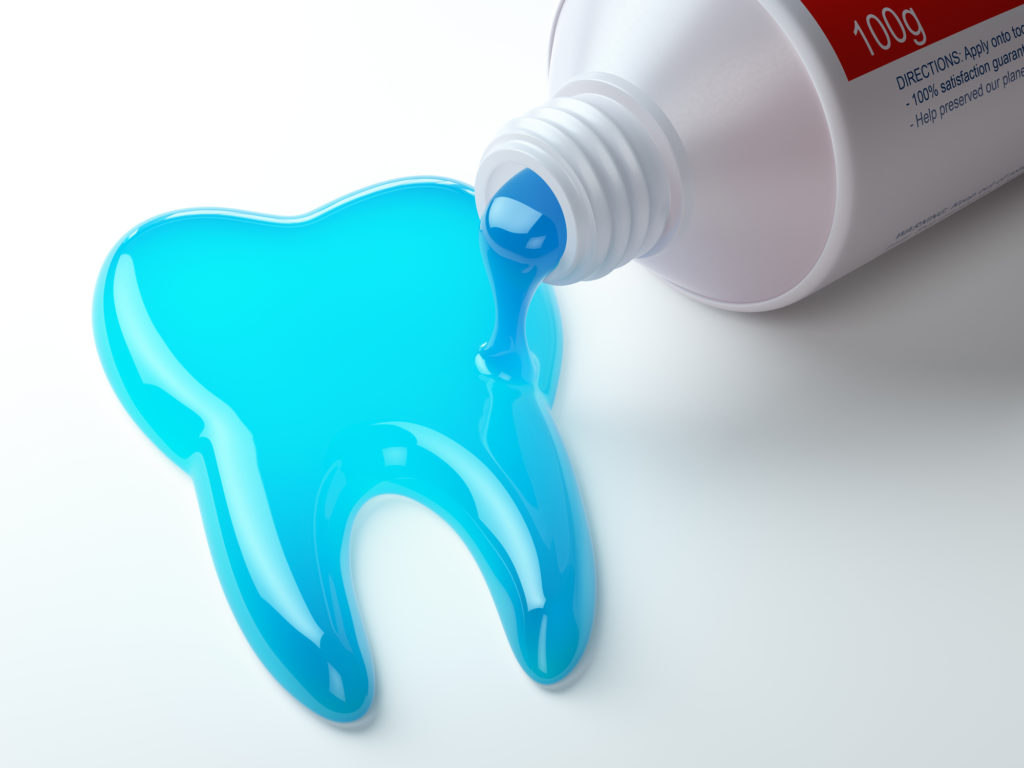
With so many toothpaste options to choose from, we hear this question a lot from our patients. Picking the right toothpaste when there is often an entire drugstore aisle filled with options can feel quite overwhelming.
We are here to help you figure out what is important in a toothpaste so that you can be confident you are making the best choice for you and your family.
What to Consider When Choosing Your Toothpaste
There are many factors to take into account when choosing a toothpaste. But the top three are the American Dental Association Seal of Acceptance, Flouride, and any specific personal needs you have.
ADA Seal of Acceptance
This seal can be found on toothpaste packaging and may be the most important thing to look for in a toothpaste. The ADA Seal of Acceptance means that the toothpaste has undergone certain quality controls to make sure it is safe and effective. At a minimum, be sure to choose a toothpaste with this seal.
Fluoride
Another non-negotiable when it comes to choosing a toothpaste is that it contains fluoride. Fluoride is a mineral that has protective effects on the enamel of your teeth. Fluoride has been proven to strengthen enamel and prevent cavities. While you may have fluoride in your tap water and get an intensive treatment at your regular dental appointments, nothing beats getting fluoride twice a day with your regular brushing.
Personal Preference
Beyond these two important factors, think about what specific concerns you or your family members have.
Sensitivity
If you experience tooth sensitivity, consider a toothpaste to address this issue. There are many over-the-counter choices to experiment with. If you try over-the-counter sensitivity toothpaste and do not find it helpful, reach out to our office as there are prescription options available.
Whitening
Whitening toothpaste will not remove deep set-in stains as well as professional tooth whitening. However, these can be effective at polishing away everyday contributors to stains, including eating, drinking, and smoking. Keep in mind that the way these toothpastes generally work is by abrasives, and with long-term use, they can cause sensitivity and even damage enamel.
Natural
If you are considering a natural toothpaste, be sure to check for the ADA seal of acceptance and fluoride, as many of these options do not have one or both of these important factors. While there is not a lot of evidence that natural toothpaste will harm or benefit you, as long as it carries these two important aspects, you can feel confident in the product.
What to Avoid
We cannot say it enough, but you should avoid any toothpaste without the ADA Seal of Acceptance or fluoride. Beyond that, there are a couple of other issues to watch out for.
Sweetened Toothpaste
While the flavor of your toothpaste itself doesn’t matter, some toothpastes contain sweeteners to appeal to children or those who don’t enjoy traditional toothpaste flavors. Sugar and other sweeteners, however, can damage teeth and promote tooth decay and gum disease, so sweetened toothpaste should be avoided.
Charcoal or Baking Soda
While these ingredients may be touted as a “natural” way to whiten teeth, there is little evidence they are safe or effective. Because they are abrasive, charcoal and baking soda may scrub off certain surface stains, but they also may damage tooth enamel and lead to the erosion of enamel and tooth sensitivity.
Microbeads
Like charcoal and baking soda, microbeads are abrasive and can damage enamel. In addition, they are made from insoluble plastics that cannot be digested and can be damaging to the environment.
Can I Be Confident in My Choice?
If your toothpaste has the ADA Seal and contains fluoride, the rest is up to personal preference, individual concerns, and budget. Of course, if you have questions about your preferred toothpaste brand or any other oral hygiene concerns, just reach out to our office. We are always happy to help!